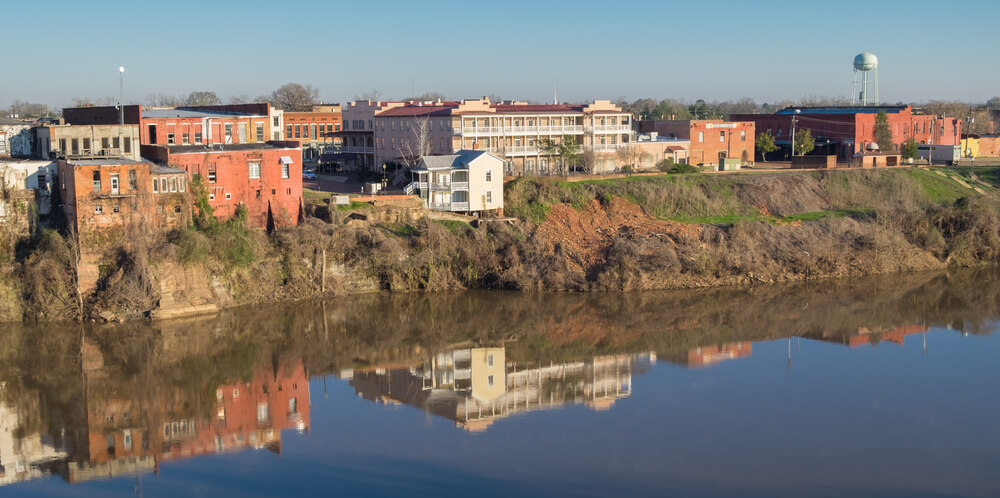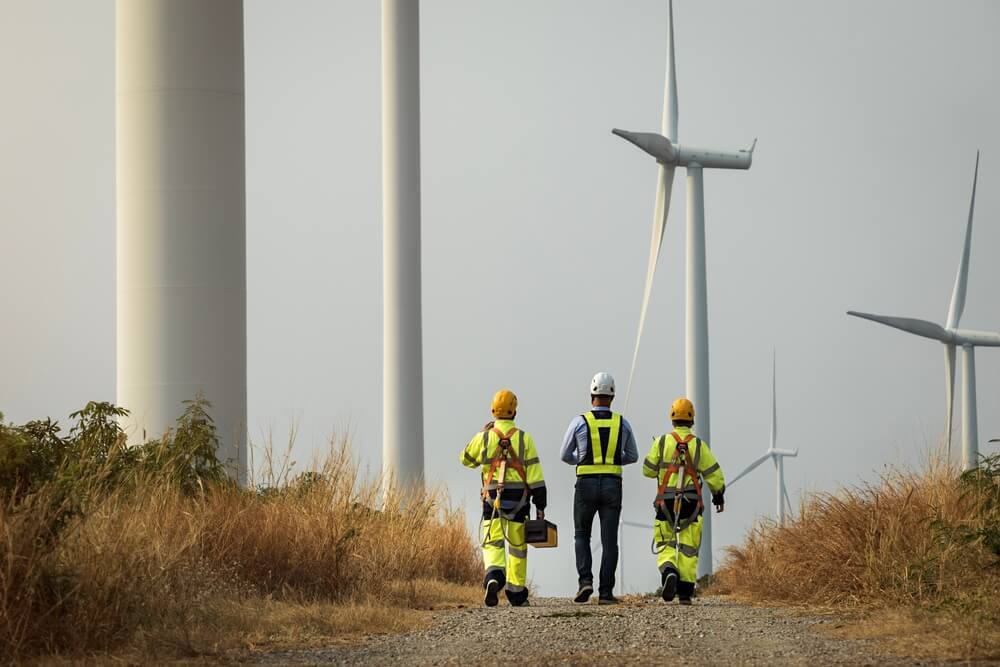Greetings, Agents of Impact!
Featured: ImpactAlpha Original
Opportunity Alabama is combining community and capital to fulfill the potential of Opportunity Zones. A senior-care facility in Heflin, Ala., population 5,000. A restored hotel in Selma. Workforce housing and an historic theatre in Birmingham. In the last three years, Opportunity Alabama has helped facilitate more than a dozen real estate projects, totaling more than $300 million, in low-income areas in one of the poorest states in the U.S. The projects, which meet needs identified by community partners, are located in Opportunity Zones, qualifying investors in the projects for capital gains tax breaks that were included in the 2017 tax legislation. The strategy of building projects up from the grassroots, rather than down from the financing, has made Opportunity Alabama appealing even to nonprofit investors who can’t take advantage of the tax break. The organization has raised $13 million for The Opal Fund, a joint venture with Blueprint Local, a place-based investment platform led by Village Capital founder Ross Baird. Blueprint Local has also raised Opportunity Funds in Baltimore and Texas’ Austin-San Antonio corridor.
The momentum in Alabama “speaks to the latent power of Opportunity Zones,” Opportunity Alabama’s Alex Flachsbart told ImpactAlpha. “The incentive is powerful enough, and it’s got a reach that’s broad enough and an aperture wide enough to start the conversation about investing in low-income places that we haven’t been having for the last 100 years.” Almost three years in, however, such community-led strategies represent exceptions to the rule. Findings from the first comprehensive study of Opportunity Zones show that the lion’s share of Opportunity Zone investments have flowed to gentrifying neighborhoods already attractive to investors. Economic Innovation Group, the U.S. Impact Investing Alliance and dozens of other groups and investors are pressing the Biden administration for a set of detailed changes. It was perhaps inevitable that the attraction of tax breaks would encourage all sorts of bad behavior in Opportunity Zones. Less clear was whether community leaders could mobilize enough good things. Proponents can point to projects that deliver mental health in Phoenix, residential solar in Chicago, affordable housing in Los Angeles, along with the slate of projects in Alabama that has grown out of local organizing efforts. Says Flachsbart, “It’s for exactly that reason that we’re bucking the trend.”
Keep reading, “Opportunity Alabama is combining community and capital to fulfill the potential of Opportunity Zones ” by Dennis Price on ImpactAlpha.
Dealflow: Follow the Money
Brazil’s Positive Ventures secures $10 million for early-stage impact fund. The Sao Paulo-based impact investor is looking to cut checks of up to $1.5 million in startups tackling social inequality and climate change. Positive Ventures, a certified B Corp, has eight investments under its belt, including five from its new fund, TechCrunch reports.
- Impact portfolio. Most of Positive’s investments serve Brazil and Latin America: Labi Exames has developed a low-cost COVID test to reach low-income and uninsured Brazilians and help businesses reopen safely. (Brazil has the second highest COVID death count and third highest number of cases worldwide.) Fintech startup Provi facilitates education loans to upskill Brazil’s workforce. In the U.S., Positive has backed the customer-owned fintech Good Money and the drug discovery platform OccamzRazor.
- Investing landscape. Venture capitalists committed 9.1 billion raeis ($1.7 billion) to Brazilian startups in 2020. Fintech is the most well-funded sector, followed by information and communications technology. The more than 30 impact investors in the country include Sao Paulo-based Vox Capital, MOV Investments and Kviv Ventures.
- Read on.
Community Investment Management backs Brigit with $75 million in debt to help working Americans manage their finances. At least 100 million Americans live paycheck to paycheck. Brigit provides personalized budgeting, savings and credit-building tools through its mobile app. Brigit says it has helped more than one million users save over $250 million in overdraft fees since it launched in 2019.
- Financial inclusion. CIM has also backed U.K.-based Salary Finance, providing $150 million in debt financing for affordable lending to working Americans financially impacted by COVID (see, “CIM backs Salary Finance to provide affordable loans for underserved workers”).
- Share this post.
Paris-based Tikehau Capital launches private equity decarbonization fund for North America. The firm has raised $300 million for its first North America-focused fund to invest in businesses supporting the transition to a low-carbon economy and help the U.S. “accelerate progress towards reaching net carbon neutrality.” The launch follows the February close of Tikehau’s second European-focused fund, which raised more than €1 billion ($1.2 billion) and already has invested €440 million in six companies.
- Global responsibility. Tikehau’s Mathieu Chabran called out investors’ responsibility to “directly contribute to global efforts towards meeting carbon neutrality goals.”
- More.
PosiGen scores $27 million to bring low-cost solar energy to American households. The New Orleans-based company is aiming to make solar energy accessible through low-cost rooftop solar panel leasing and energy efficiency upgrades for low-income households. It says it has helped 17,000 customers in Louisiana, Connecticut, New Jersey, New York and Florida switch to clean energy and reduce utility bills since 2010. The latest financing was led by SJF Ventures, Kayne Anderson and Activate Capital. The company closed on $33 million in December (see, “Builders Fund backs affordable residential solar firm PosiGen”). Dig in.
Dealflow overflow. Other investment news crossing our desks:
- Israel’s IRP Systems secures $31 million in Series C financing to scale the development of its electric powertrain systems for e-mobility companies.
- Local Initiatives Support Corp.’s Black Economic Development Fund snags $20 million from DuPont to support Black-led financial institutions and businesses in Black communities.
- CDC Group, the U.K. development finance institution, is investing $33.7 million in India’s Fourth Partner Energy to build and finance solar energy projects in India and South Asia.
- Atlanta-based Goodr, which donates surplus food to people experiencing food insecurity, raises $1.5 million in pre-Series A funding.
Impact Voices: Pass the Mic
What ESG funds can learn from the shortfalls of Opportunity Zone funds. Environmental, social and governance investing will get a boost from the Biden administration, along with scrutiny and regulation (see, “Regulators in the US and Europe put ESG fund managers on notice for ‘greenwashing’“). Two-thirds of private equity firms take ESG into account, but only 29% make a full ESG policy publicly available. “The trajectory of Opportunity Zones – and the controversies surrounding its early-stage implementation – demonstrate the potential pitfalls of not having strong impact measurement and regulatory clarity,” writes JTC Americas’ Reid Thomas in a guest post for ImpactAlpha.
- Regulatory clarity. The history of Opportunity Zones investing demonstrates the importance of clear guidance from regulators. Early confusion fed a perception that the tax breaks benefited only big real estate developers, rather than operating businesses that were also eligible. Since regulators clarified the rules, “operating business investment is flourishing,” says Thomas. Half of all new OZ funds formed in the second quarter of 2020 were focused on or included operating business investments, according to JTC Americas’ OZ Data Insights. The lesson: ESG fund managers can stay ahead of criticism for “impact washing” by measuring impact and being transparent about the outcomes, says Thomas.
- Keep reading, “What ESG funds can learn from the shortfalls of Opportunity Zone funds,” by Reid Thomas on ImpactAlpha.
Agents of Impact: Follow the Talent
Harvard Business School’s George Serafeim joins the board of Liberty Mutual Insurance… David Hampton, ex- of Hampton Innovations, is named executive director of LISC Indianapolis… Inclusive Prosperity Capital has openings for a managing director and an investment analyst for clean energy finance… The CGIAR Research Program on Climate Change, Agriculture and Food Security is looking for a climate-smart agriculture researcher in Latin America… Tideline is hiring an operations associate in Portland or San Francisco; its BlueMark unit seeks an impact investing associate in New York or remote.
The MovingWorlds Institute Global Fellowship is opening applications for its career accelerator… FINNOVATION Lab’s Fellowship Program in Minnesota is accepting applications from social entrepreneurs… CarbonTracker is hosting “Divesting from Fossil Fuels: the role of social movements in mobilising the finance sector,” featuring the firm’s Mark Campanale, University of Cambridge’s Ellen Quigley, the Fossil Fuel Non-Proliferation Treaty’s Harjeet Singh and trust executive Sian Ferguson, Friday, May 7… Climate Policy Initiative and the European Climate Foundation, in partnership with the University of Oxford, are holding a launch event for the Principles for Sustainable Finance Integrity, May 10.
Thank you for your impact.
– Apr. 29, 2021











